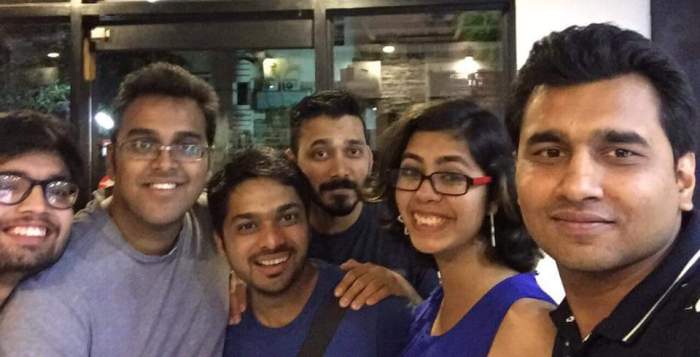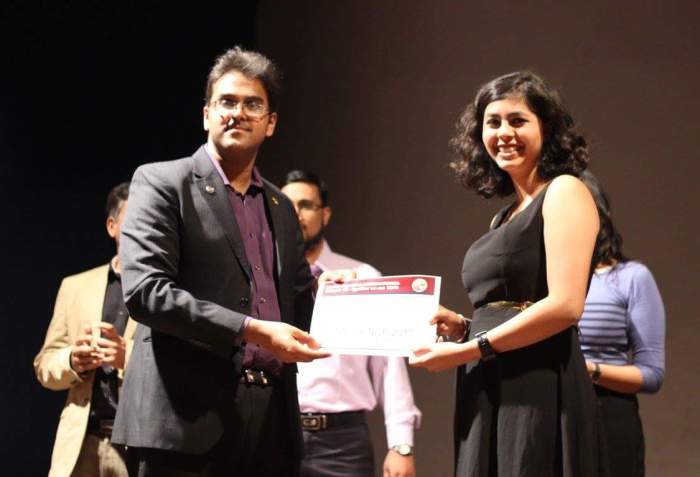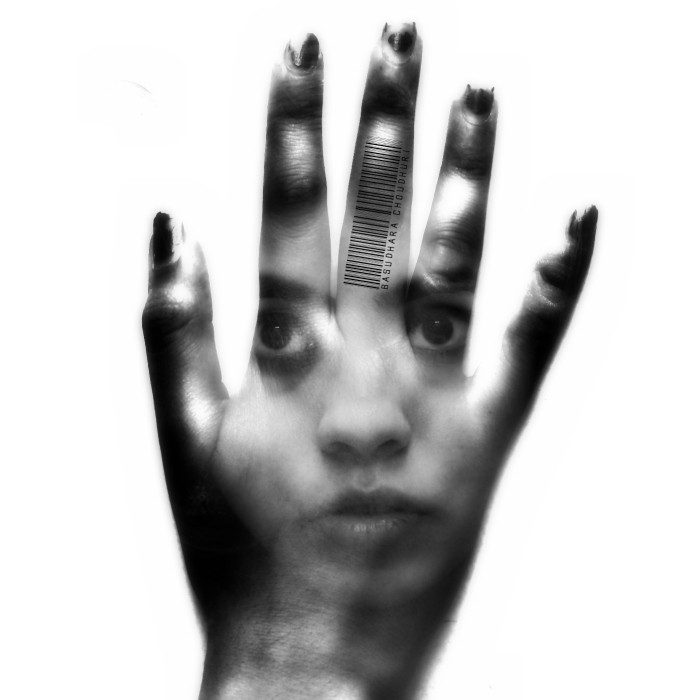I have never seen death up close.
I have never lost somebody very close to me in front of my own eyes. I’ve heard stories of others losing a parent, a grandparent, a close relative, a friend, right before their eyes. But I have never seen it upfront.
In fact, up until I was ten, death seemed like a myth to me. It was just ridiculous. How could somebody just cease to exist? I couldn’t wrap my head around it at all.
When I was ten, I lost Boroma.
Boroma, translated from Bengali to English, means ‘elder mother’. She was my maternal grandfather’s aunt but only a few years older than him. She’d led a very rough life: she had not been educated, then she got married, the marriage was difficult and she chose to walk out of it and then she lived with my grandfather. She had no children, and nobody else to call family. These were not the things I knew through her though. These were things that my mother, father, and grandfather told me. The Boroma I knew was not somebody worn out by a tough life at all. She was a completely different person.
Boroma loved me. I think there were few people in the world that Boroma loved as much as she loved me, and there are definitely very few people in the world who will ever be able to love me like she loved me. When I was a baby, she bathed me and fed me. I have childhood photos of myself, sitting in a small tub, and Boroma looking at me proudly. When I grew up a little more, she made some of my favourite dishes. I loved aloo bhaja (potato fry) and whenever I would arrive at my grandfather’s doorstep, my first demand from her would be some aloo bhaja. And she always, always had some ready. She would tell me stories about the hanumans (grey langurs) in our locality. She would talk about how clever they are and how they could interact with humans. Boroma made me feel happy and warm in a way that I rarely feel anymore.
Boroma’s rough backstory caught up with her as she grew older. She had fallen and dislocated her hip joint, which had to be replaced. After that surgery, she never really walked properly again. And I think this led her to feel like she could not really contribute to the family anymore, like she was a burden. That’s what I think now, anyway. At that age, I didn’t know any better. All I knew was that she was Boroma and I loved her and that she could never possibly be a burden to anybody in the whole wide world.
When I was nine, going on ten, Boroma fell again and dislocated her other hip and had another surgery. Doctors discovered bedsores. When they discovered them, it was already quite severe. Without doubt, Boroma was not going to survive.
My mother explained this to me in the gentlest way she could. I never really grasped it. We weren’t in Kolkata when the bedsores were discovered and we were not going to back for almost another ten months or so. But I wasn’t worried. I’d seen Boroma that summer, hardly two months ago. I was confident I was going to see her again. Everybody had always told me Boroma was really strong, really resilient, that she was a fighter. She didn’t have a single unhealthy cell in her body: perfect blood pressure, no cholesterol, no sugar, no problems at all. How could something as insignificant as sores take her away from me?
I was wrong. With each passing update from my grandfather, it seemed like Boroma was getting worse. The sores were horrible. I heard about them: the way there were gaping holes where her skin was supposed to be. Yet I was convinced that Boroma would survive this. She is a fighter. Fighters do not die.
But fighters do die, and so did Boroma. That morning, I was woken up a little earlier than normal for school. My mother informed me that Boroma had passed away. I listened in shocked silence. I didn’t really react. It didn’t seem real. Boroma couldn’t go away. She would never leave for anywhere where she wouldn’t be able to see me.
I went to school, went about my day, and life went on. We did not go to Kolkata for the funeral. I never got to say goodbye.
I never shed a single tear.
The next summer, we went to Kolkata. Boroma’s regular space on the bed was empty. Her walking stick wasn’t there. A real, living, breathing person had once taken up this space. And now she just was not there anymore. It was one thing to see her spot empty. It was quite another to have other people sitting there. My heart would leap into my mouth with only one thought swirling around my brain: “That’s Boroma’s place. You can’t sit there.”
During that Kolkata visit, I recalled the previous year, when I’d last met her. And I remembered an incident that I carry with me till date, something that haunts me over and over and over. Boroma, in her later years, had begun throwing tantrums. My mother and grandfather could not understand them and at nine-and-a-half, neither could I. At that age, I was quite cranky myself and Boroma’s daily tantrums had been driving me crazy. And one night, when she was throwing a tantrum before dinner, I shouted at her. I told her to stop creating a fuss, I told her to eat her dinner, I told her to stop creating a ruckus every single day. She didn’t even fight back. She listened.
I am sure that before I left for Muscat a few days after that incident, I hugged her and I touched her feet. But I never forgot that I’d shouted at her. I’d raised my voice at somebody a good seventy years older than me, somebody who had always treated me with tenderness and affection. I never forgave myself, more so, because I never got a chance to ask her to forgive me.
Nobody really talked to me about death. Nobody helped me deal with Boroma passing away. And I never talked about it. I allowed myself to be immersed in everyday life, without paying too much attention to the ache in my chest. I never really dealt with her death at all. I just pushed the the pain it caused me far, far away, hoping that it would never catch up with me. I thought if I would run away from my hurt, it would not be able to find me.
Around two months ago, I began preparing a speech for a contest in my Toastmasters club. Having spoken to many senior members about how to write my speech, I decided that a simple message with a personal story would strike the right chord. And somehow, Boroma sprang into my mind. My speech’s message was about not waiting to tell the people you care for that you love them. My personal story was about how I never really told Boroma that I loved her.
It was a simple enough story. I gave it flawlessly at my club and came first. I represented my club at the Area Contest and gave the same speech and came second. I received lots of comments on how important the message of my story was and how well I delivered it.
Nobody knew how many times I’d cried in the shower while practising that speech. Nobody knew how many times the words had choked in my throat as I practised. Nobody knew that ten years after Boroma passing away, I still hadn’t really grieved enough to move on.
2 April 2017 was the Division Contest. Having come second in the Area Contest, I had gotten the chance to represent my area at the division level. It was a big deal. Winning this would mean going to Mumbai for the next round, speaking in front of Toastmasters from my District. I was really excited.
Somehow, with the lights, with the audience, and maybe with the lack of sleep the previous night, I fumbled. For the first time while publicly delivering the speech, I felt my words choking in my throat, my mind going blank, and my body aching for Boroma to wrap her arms around me. To most of the audience, I looked fairly composed. I work well under pressure so the stage doesn’t frighten me. But inside my head, I was falling apart. The moment I left the stage, I was in tears. I had told so many people the story of Boroma and with each retelling, I had been forced to say out loud that she had passed away, something I had refused to accept despite not having seen her for the last ten years. And so now, ten years too late, I am allowing myself to grieve.
I am allowing myself to remember the way her curly black and white hair looked, pulled back in a bun. I am allowing myself to remember the way her face looked when she smiled her nearly toothless smile. I am allowing myself to remember the wrinkles on her skin. I am allowing myself to remember how I would wrap myself around her lovingly and receive aloo bhaja in return. I am allowing myself to remember how she would lovingly run her fingers through my hair. I am allowing myself to remember that once upon a time, she was here, and she held me and hugged me and told me many stories. And most importantly, apart from everything else, I am allowing myself to cry. All the tears I never shed ten years ago have come tumbling forth now. I am allowing myself to feel the emotions I didn’t let myself feel for all of these years.
It’s true when they say that ‘when someone you love becomes a memory, your memories become treasure’. I may not get any more time with Boroma ever again, but I will treasure the fact that I got the chance to feel her unconditional love for me for the first ten years of my life.
I really, really hope that no matter who I become, I always remain someone that Boroma would have been able to look at with love and say, “Aamaar shona Bibil.” (My dear Bibil).







